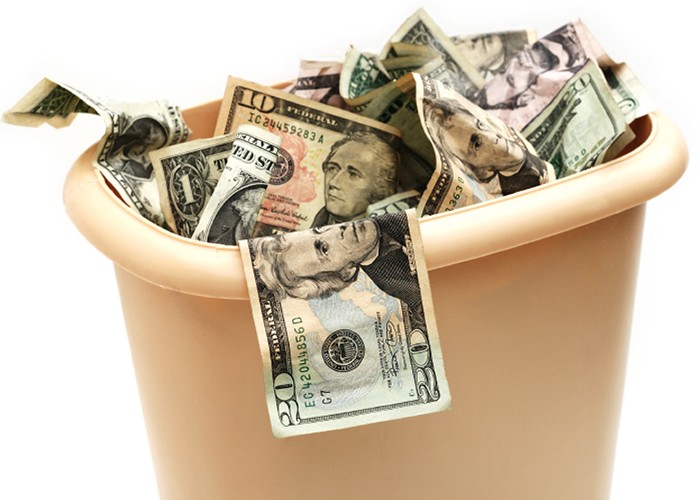Should You Cash Out Your 401(k) When Leaving a Job Money Under 30
Post on: 8 Октябрь, 2015 No Comment

Did you know that 45% of Americans cash out their 401(k) retirement accounts when they leave their employers? Do you know that when you cash out your account before the age of 59 ½ that your withdrawal is not only taxed like regular income but also subject to a 10% early withdrawal penalty?
The decision to cash out your 401(k) when you leave a job should not be made lightly. Are there any times you should cash out you 401(k) early? Perhaps. Here’s when cashing out might be okay, and what to do when you shouldnt.
What Happens to Your 401(k) When You Leave Your Job
Your 401(k) plan is a retirement account that is sponsored by your employer and can only be funded through regular payroll deductions. So when you leave a job (whether you resign or are let go), you stop contributing to your 401(k), but the balance (less any unvested employer matching contributions ) stays in the account until you tell your now ex-employer what to do with it. You can let it sit in your old employer’s account for a long time if you want or, you can choose from three options:
- Cash out
- Roll over your old 401(k) balance to a new employer’s plan
- Roll over your 401(k) to an individual retirement account (IRA) of your choice
Cashing Out Your 401(k)
When presented with these three options, cashing out seems like the easiest option. Whether or not you plan to spend or reinvest your 401(k) money, cashing out seems quick and easy. And it is, but it comes with a big, big cost; not only will you pay the 10% early withdrawal penalty, but you’re risking loosing decades of investment returns if you don’t reinvest the funds.
Now, there are some exceptions to the “don’t cash out your 401(k)” rule. If you are laid off, have no emergency savings, and don’t expect to find new work quickly, you might consider cashing in your 401(k) to stay above water while you look for a new job. In this case, only withdraw as much as you need from your 401(k) each month. That way if you find new work sooner than you expect, you won’t have paid the penalty on withdrawals you won’t need now.
If you have high interest credit card debt and can pay it off with your 401(k) balance (after taxes), whether to keep your 401(k) or pay off debt is a toss up. I hear personal finance gurus advocate both that you should never touch your 401(k) to pay off debt and others that say that when you have debt, eliminating it should be your only priority, so obviously the 401(k) should go towards that.
Mathematically, although the interest rate you’re paying on your debt is higher than what your 401(k) could earn most years, you’re going to leave that money invested for (hopefully) a lot longer than you’ll have your debt. That means the compounding potential of your 401(k) balance is worth more than the interest you’ll pay on debt. Assuming of course, you can get that debt paid off with other sources before you retire!
Rolling Over to Your New Employers Plan
When you take a new job and enroll in their 401(k) plan, you’ll have the option of rolling over your old balance to the new plan. Usually your benefits administrator can help you with this. With any qualified rollover you won’t pay taxes or a penalty; your investments just move from one account to another.
If you don’t want to keep track of multiple accounts, this is the way to go. On the flip side, employer-sponsored 401(k) plans often have limited investment options. For most of us that just want to set and forget our investments, that’s not an issue. If you want to be a more hands on investor, read on.
Rolling Over to an IRA
I recommend that when you leave an old job, you do a 401(k) rollover to an IRA. It’s tax free, there’s no penalty, and it gives you the greatest flexibility in managing how you want to invest your retirement savings.
Almost any financial institutions offer IRAs, but not all accounts are created equal. Many banks and credit unions provide CD or Money Market IRAs, but these should only be used by savers nearing retirement who need very low-risk investments. If you’re young, you should be investing your retirement savings in securities. With that in mind, here are a few places to start shopping for a place to roll over your 401(k) into an IRA:
- Scottrade
- E*Trade
The Bottom Line
Cashing out your 401(k) should only be used as a last resort if you need emergency cash or are willing to trade retirement savings for eliminating some big debts. Rolling over your 401(k) takes a few minutes of paperwork but is generally very easy and will save you from giving 30% of your account balance to the IRS.
If you’re looking for the convenience of one account for all of your retirement savings, roll your 401(k) to your new employer’s plan. If you want more control over your investments and don’t mind having two accounts, roll the 401(k) balance to a traditional IRA.














